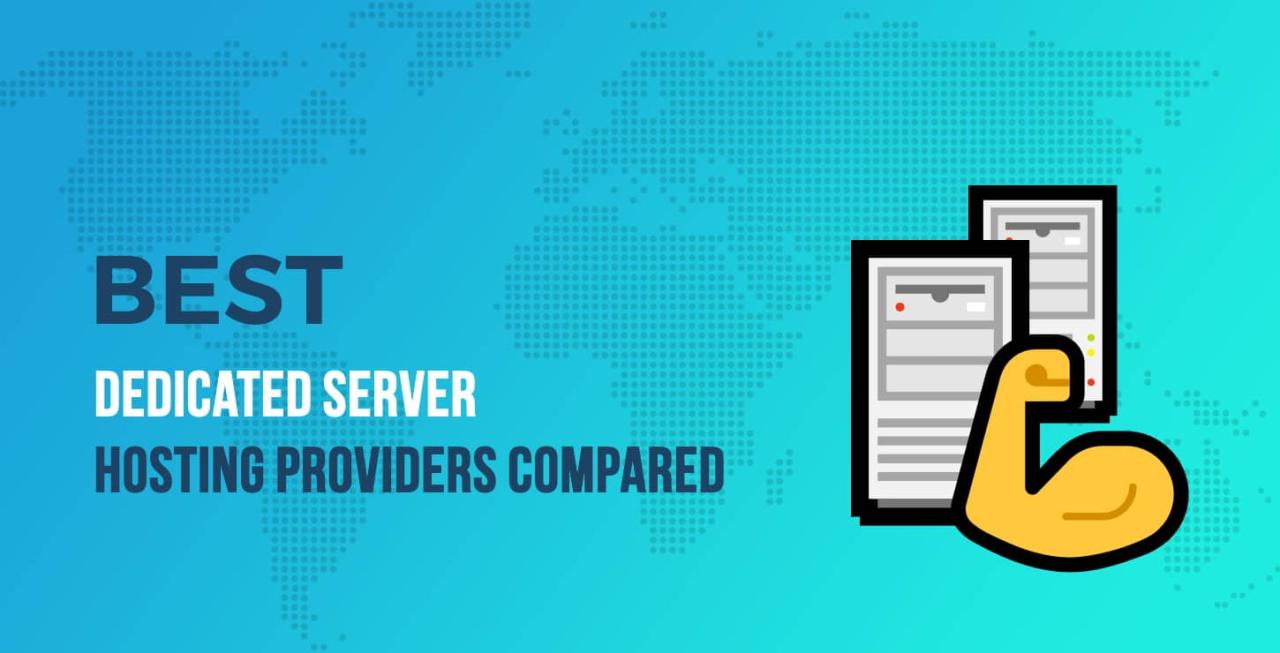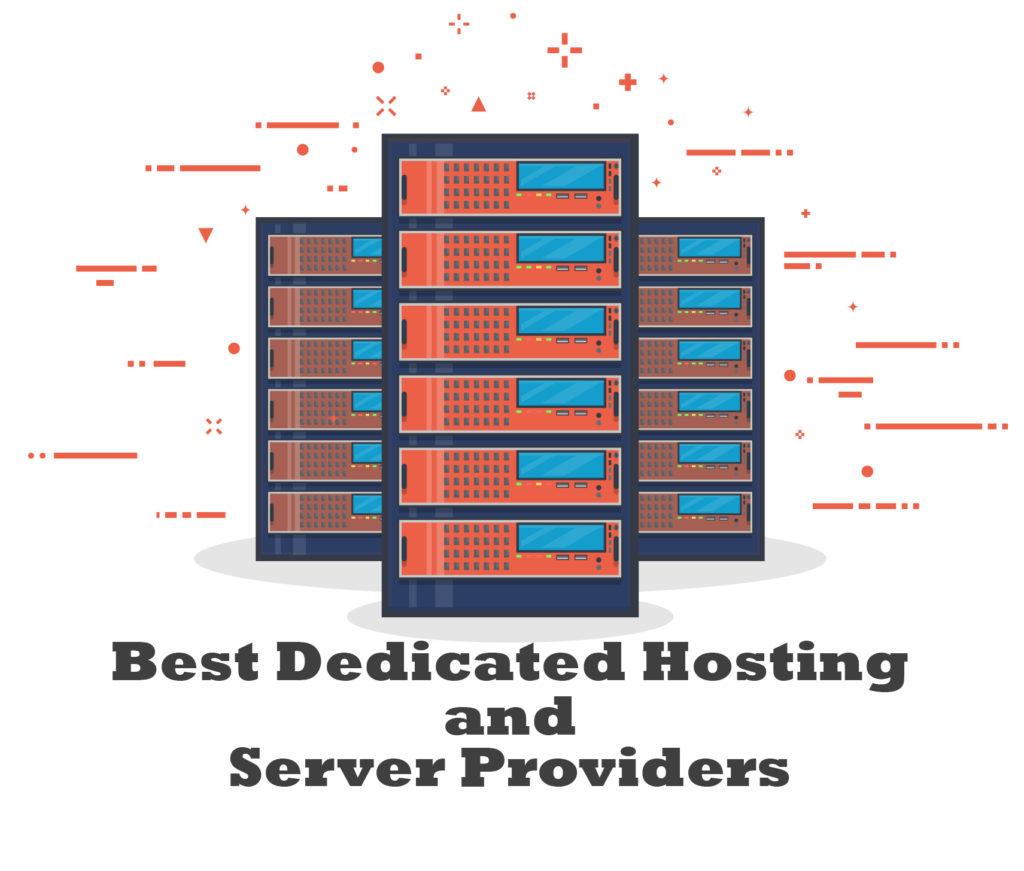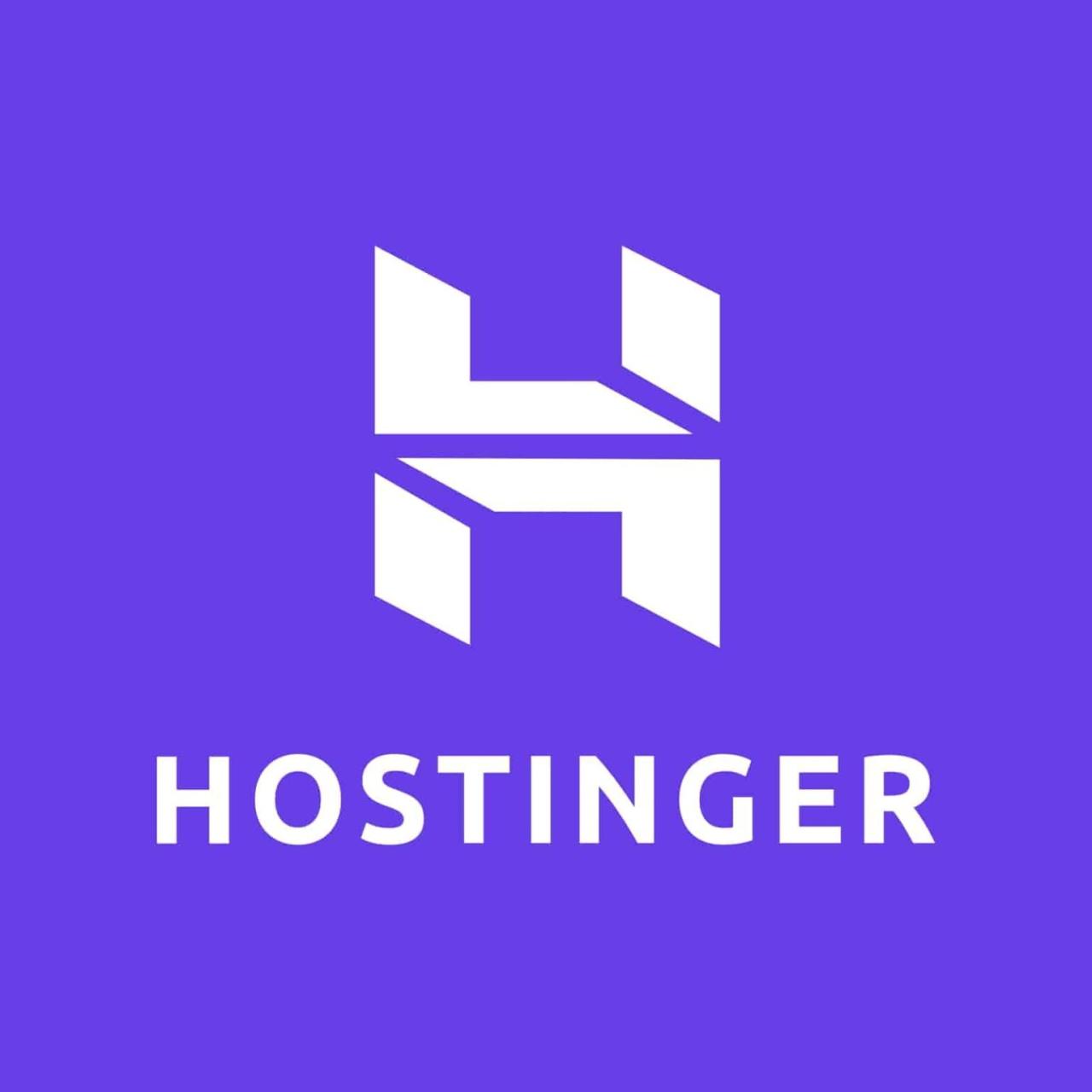Best dedicated server providers offer a powerful and reliable hosting solution for websites and applications that demand high performance and security. Unlike shared hosting, where multiple websites share the same server resources, dedicated servers provide exclusive access to a physical server, guaranteeing dedicated resources and control. This means you can enjoy enhanced performance, increased security, and greater flexibility in managing your online infrastructure.
Choosing the right dedicated server provider is crucial for ensuring your website or application runs smoothly and efficiently. Several factors need to be considered, including server location, bandwidth, storage, security, uptime, customer support, and pricing. Understanding the nuances of each factor and comparing different providers can help you make an informed decision that aligns with your specific needs and budget.
Understanding Dedicated Servers
Dedicated servers offer a dedicated, exclusive hardware resource for your website or application. Unlike shared hosting, where multiple websites share the same server, dedicated servers provide a single, isolated environment, guaranteeing optimal performance and security.
Advantages of Dedicated Servers
Dedicated servers provide numerous advantages over shared hosting, making them ideal for websites with high traffic, demanding applications, and specific security requirements. Here are some key benefits:
- Enhanced Performance: Dedicated servers eliminate resource contention, ensuring consistent performance for your website or application. This is crucial for high-traffic websites and resource-intensive applications that require dedicated processing power and memory.
- Increased Security: With a dedicated server, you have complete control over the server environment, minimizing the risk of security breaches and malicious attacks. You can implement robust security measures and manage access to your server resources effectively.
- Scalability and Flexibility: Dedicated servers offer greater scalability and flexibility, allowing you to easily adjust your server resources to meet changing demands. You can upgrade your server configuration or add additional resources as your website or application grows.
- Root Access and Control: Dedicated servers provide root access, giving you complete control over the server’s operating system, software, and configuration. This allows for customization and optimization to meet your specific requirements.
- Improved Reliability and Availability: Dedicated servers typically offer higher uptime and reliability compared to shared hosting. This is because you have dedicated resources and can implement redundancy measures to ensure your website or application remains available at all times.
Types of Dedicated Servers
Dedicated servers are available in different configurations to cater to various needs and budgets. Here are the most common types:
- Physical Dedicated Servers: Physical dedicated servers provide a physical server with dedicated hardware resources, including CPU, RAM, storage, and network bandwidth. This is the most traditional and secure option, offering complete control over the server environment.
- Virtual Dedicated Servers: Virtual dedicated servers, also known as VPS (Virtual Private Servers), utilize virtualization technology to create dedicated environments within a physical server. While sharing the physical hardware, each VPS has its own operating system, resources, and security, providing a level of isolation and control similar to physical dedicated servers.
- Cloud Dedicated Servers: Cloud dedicated servers leverage cloud computing technology to provide dedicated resources on a pay-as-you-go basis. These servers are scalable, flexible, and offer high availability, allowing you to easily adjust your resources based on your needs. Cloud providers manage the underlying infrastructure, simplifying server management and maintenance.
Key Factors to Consider
Choosing the right dedicated server provider is crucial for ensuring optimal performance, reliability, and security for your online operations. Several factors need careful consideration when evaluating potential providers.
Server Location
The physical location of your server can significantly impact latency and performance, especially for users located in different geographical regions.
- Latency: Data transfer times are directly affected by geographical distance. Servers located closer to your target audience will result in faster response times and a better user experience.
- Data Sovereignty: Some regions have specific data privacy regulations, such as the European Union’s General Data Protection Regulation (GDPR). Choosing a server located within a region that complies with relevant regulations can ensure compliance and avoid potential legal issues.
- Cost: Server pricing can vary depending on location, with costs generally higher in regions with higher infrastructure costs.
Bandwidth
Bandwidth refers to the amount of data that can be transferred between your server and the internet in a given time.
- Traffic Volume: The amount of bandwidth required depends on your website’s or application’s traffic volume. Higher traffic volumes necessitate higher bandwidth to avoid slow loading times and performance issues.
- Type of Content: Streaming video or large file downloads require significantly more bandwidth than static websites with minimal content.
- Burstable Bandwidth: Some providers offer burstable bandwidth, which allows for temporary increases in bandwidth during peak traffic periods. This can be a cost-effective option for websites with occasional traffic spikes.
Storage, Best dedicated server providers
Storage capacity is the amount of space available on your server to store data, such as websites, applications, and files.
- Disk Type: Different types of storage, such as hard disk drives (HDDs) and solid-state drives (SSDs), offer varying performance and reliability. SSDs are generally faster and more reliable but are typically more expensive.
- Storage Space: The amount of storage required depends on the size of your website, applications, and data files. Ensure you choose a provider that offers sufficient storage to accommodate your current and future needs.
- Redundancy: Consider providers that offer redundant storage solutions, such as RAID configurations, to protect your data from hardware failures.
Security
Protecting your server and data from unauthorized access and cyber threats is paramount.
- Firewalls: Firewalls act as a barrier between your server and the internet, blocking unauthorized access and malicious traffic.
- Antivirus and Malware Protection: Ensure your provider offers comprehensive antivirus and malware protection to safeguard your server from threats.
- Data Encryption: Data encryption ensures that even if data is intercepted, it cannot be accessed without the appropriate decryption key.
- Regular Security Audits: Providers should conduct regular security audits to identify and address vulnerabilities.
Uptime
Uptime refers to the percentage of time your server is available and operational.
- Service Level Agreements (SLAs): Reputable providers offer SLAs that guarantee a specific uptime percentage. Higher uptime percentages ensure greater reliability and minimize downtime.
- Redundant Infrastructure: Providers with redundant infrastructure, such as multiple data centers and power sources, can minimize downtime in case of hardware failures or power outages.
- Monitoring and Maintenance: Providers should actively monitor server performance and conduct regular maintenance to prevent issues and ensure optimal uptime.
Customer Support and Technical Expertise
Reliable customer support and technical expertise are essential for resolving issues quickly and efficiently.
- Response Time: Look for providers that offer prompt and responsive customer support, ideally with 24/7 availability.
- Technical Expertise: Choose providers with experienced technical staff who can assist with server management, troubleshooting, and security issues.
- Communication Channels: Ensure the provider offers multiple communication channels, such as phone, email, and live chat, for easy access to support.
Top Dedicated Server Providers
Choosing the right dedicated server provider is crucial for businesses and individuals requiring high performance, reliability, and security. A dedicated server offers dedicated resources, ensuring optimal performance and control over your server environment. To help you make an informed decision, we’ve compiled a list of top dedicated server providers.
Dedicated Server Provider Comparison
This table compares five leading dedicated server providers, highlighting their pricing, server specifications, features, and customer reviews.
| Provider Name | Pricing | Server Specifications | Features | Customer Reviews |
|---|---|---|---|---|
| DigitalOcean | Starting at $60/month | Various configurations available, including Intel Xeon processors, SSD storage, and ample RAM | User-friendly control panel, robust API, DDoS protection, 24/7 support | Generally positive, with praise for ease of use and reliable performance |
| Linode | Starting at $50/month | Offers a wide range of server options, including AMD EPYC processors, NVMe storage, and high-speed networking | Flexible pricing plans, global data centers, advanced security features, and a strong community forum | Highly regarded for its competitive pricing and excellent support |
| Vultr | Starting at $5/month | Provides various server configurations, including Intel Xeon and AMD EPYC processors, SSD and NVMe storage, and high-bandwidth options | Scalable infrastructure, multiple data center locations, easy-to-use interface, and a comprehensive knowledge base | Known for its affordability and reliable performance, with a focus on simplicity |
| HostGator | Starting at $89.98/month | Offers a wide range of dedicated server options, including Intel Xeon processors, RAID storage, and managed services | 24/7 support, free website migration, cPanel control panel, and a comprehensive suite of security features | Generally positive, with praise for its customer support and reliable uptime |
| GoDaddy | Starting at $99.99/month | Provides dedicated servers with Intel Xeon processors, SSD storage, and various bandwidth options | Managed services, website builder tools, domain registration, and 24/7 customer support | Reviews are mixed, with some praising its ease of use and others highlighting issues with performance and customer support |
Server Management and Control Panel
Managing a dedicated server can be a complex task, requiring expertise in various aspects like security, updates, and resource allocation. A control panel acts as a centralized interface, simplifying these tasks and providing a user-friendly way to manage your server.
Control Panel Options
Control panels offer a range of features that streamline server management, from website hosting and email management to security configuration and resource monitoring. Popular options include cPanel, Plesk, and DirectAdmin, each with its own strengths and target audience.
- cPanel: Known for its intuitive interface and extensive features, cPanel is a widely used control panel for shared and dedicated servers. It provides a comprehensive suite of tools for website hosting, email management, security, and performance optimization. cPanel is particularly well-suited for web developers and hosting providers who need to manage multiple websites and domains.
- Plesk: Designed for both shared and dedicated servers, Plesk offers a more versatile control panel that caters to a wider range of users. It supports multiple operating systems, including Linux and Windows, and provides robust features for website hosting, email management, database management, and security. Plesk is a popular choice for businesses and individuals who need a flexible and feature-rich control panel.
- DirectAdmin: DirectAdmin is a lightweight and cost-effective control panel primarily targeted at web hosting providers. It offers a simple and straightforward interface, making it easy to manage multiple websites and domains. DirectAdmin is known for its stability and performance, making it a reliable choice for hosting providers who need a control panel that can handle high traffic volumes.
Control Panel Comparison
Choosing the right control panel depends on your specific needs and preferences. Here’s a comparison of cPanel, Plesk, and DirectAdmin based on key features and usability:
| Feature | cPanel | Plesk | DirectAdmin |
|---|---|---|---|
| Interface | Intuitive and user-friendly | Versatile and customizable | Simple and straightforward |
| Features | Comprehensive, including website hosting, email management, security, and performance optimization | Robust, with support for multiple operating systems, website hosting, email management, database management, and security | Lightweight and cost-effective, with basic features for website hosting, email management, and security |
| Target Audience | Web developers, hosting providers | Businesses, individuals | Hosting providers |
| Pricing | Moderate | High | Low |
“The right control panel can significantly simplify server management and enhance productivity.”
Security and Data Protection

A dedicated server offers a higher level of security compared to shared hosting environments. However, it’s crucial to implement robust security measures to safeguard your data and applications. This section explores essential security practices and data protection strategies for dedicated servers.
Firewall Protection
Firewalls act as a barrier between your dedicated server and the external network, blocking unauthorized access and malicious traffic. They analyze incoming and outgoing network traffic based on predefined rules, filtering out suspicious connections. Firewalls are a fundamental security layer for dedicated servers, preventing unauthorized access and protecting against common threats.
Anti-Malware Software
Anti-malware software is essential for detecting and removing malicious programs that can compromise your server’s security. These programs scan for known malware signatures and suspicious activities, protecting your server from viruses, worms, and other threats. Regular updates are crucial to ensure your anti-malware software remains effective against emerging threats.
Regular Security Updates
Software vulnerabilities are constantly being discovered and exploited by attackers. Regular security updates for your operating system, applications, and other software components are essential to patch these vulnerabilities and maintain a secure environment.
Data Backups and Disaster Recovery
Data backups are crucial for data recovery in case of server failure, accidental data deletion, or cyberattacks. Regular backups ensure you have a copy of your critical data that can be restored to a previous state. Disaster recovery strategies involve planning for potential disruptions, such as natural disasters or system failures, and outlining procedures for restoring operations and data.
Last Word: Best Dedicated Server Providers

In conclusion, navigating the world of dedicated servers can seem daunting, but understanding your requirements and evaluating providers based on key factors can lead to a successful and fulfilling hosting experience. Whether you’re launching a high-traffic e-commerce platform, running a resource-intensive application, or prioritizing security and control, dedicated servers offer a robust and customizable solution. By considering the factors discussed in this guide, you can confidently choose the best dedicated server provider to power your online endeavors and achieve your goals.




